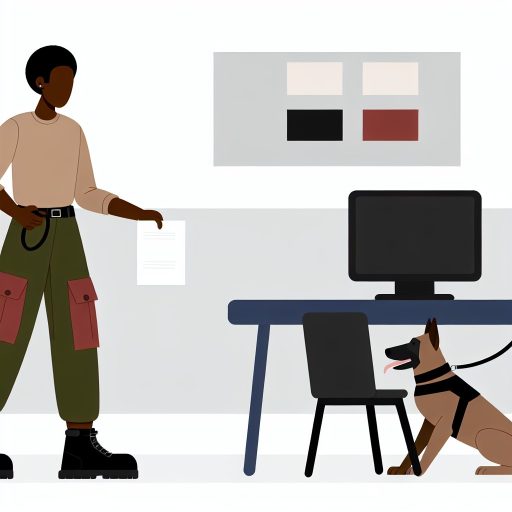Introduction
A cybersecurity specialist protects computer systems from cyber threats.
Ethical hacking plays a crucial role in cybersecurity by identifying vulnerabilities in systems.
Understanding the importance of ethical hacking is essential in maintaining secure networks.
Importance of Identifying Vulnerabilities
Identifying vulnerabilities in a system is crucial for any organization.
This helps enhance the organization’s cybersecurity measures effectively.
Ethical hacking plays a vital role by simulating potential cyber threats.
It exploits system weaknesses before malicious actors can do so.
- Ethical hacking involves conducting authorized penetration testing to identify vulnerabilities.
- By uncovering weaknesses in the system, organizations can take proactive steps to patch them.
Leaving vulnerabilities unidentified poses significant risks to organizations.
Cyber attackers can exploit weaknesses to gain unauthorized access to sensitive data.
They can also disrupt operations or cause financial losses.
- One potential risk of leaving vulnerabilities unchecked is the possibility of a data breach.
- Unidentified vulnerabilities can lead to system downtime and productivity losses.
Several past cyber attacks could have been prevented by ethical hacking practices.
These practices help organizations identify vulnerabilities proactively.
- The WannaCry ransomware attack in 2017 exploited a vulnerability in Windows systems.
- If penetration testing had uncovered this weakness, the attack might have been prevented.
Ethical hacking is a valuable tool for organizations to identify vulnerabilities.
It helps protect systems and prevents cyber attacks effectively.
Employing ethical hackers strengthens cybersecurity posture significantly.
This approach safeguards sensitive data from potential threats.
Role in Penetration Testing
Penetration testing is also known as ethical hacking.
This practice plays a crucial role in the cybersecurity realm.
It involves simulating real-world cyber attacks to find vulnerabilities.
These attacks test an organization’s systems thoroughly.
Transform Your Career Today
Unlock a personalized career strategy that drives real results. Get tailored advice and a roadmap designed just for you.
Start NowLet’s explore the significance of ethical hacking in penetration testing.
- How ethical hacking is used in penetration testing: Ethical hackers use the same techniques as cybercriminals to test a system’s security.
- By exploiting vulnerabilities, they uncover weaknesses malicious actors could exploit.
- The importance of simulating real-world cyber attacks: Simulating real attacks gives a realistic view of an organization’s security posture.
- Testing system resilience in controlled environments helps companies strengthen defenses before real attacks.
- How penetration testing can help organizations strengthen their security measures: It enables firms to identify and fix security flaws before cybercriminals exploit them.
- Regular testing helps companies stay ahead of threats and improve overall security.
Ethical hacking in penetration testing uses a proactive cybersecurity approach.
This approach helps organizations fortify defenses against evolving cyber threats.
See Related Content: TSA Officer Role in International Airport Security
When it comes to cybersecurity, mitigating security risks is a crucial aspect that cannot be overlooked.
Ethical hacking plays a significant role in helping organizations identify and address potential vulnerabilities before malicious hackers can exploit them.
How Ethical Hacking Helps in Mitigating Security Risks
- Identification of Weaknesses: Ethical hackers simulate real-world cyber attacks to identify weaknesses in an organization’s systems and networks.
- Assessment of Security Measures: By conducting ethical hacking tests, cybersecurity specialists can assess the effectiveness of existing security measures and make necessary improvements.
- Prevention of Data Breaches: Ethical hacking helps in preventing data breaches by proactively identifying and fixing security vulnerabilities before they can be exploited by cybercriminals.
Techniques Used by Cybersecurity Specialists to Prevent Data Breaches
- Penetration Testing: Cybersecurity specialists perform penetration tests to uncover vulnerabilities that could be leveraged by malicious actors to breach an organization’s systems.
- Vulnerability Scanning: Automated tools are used to scan systems and networks for potential vulnerabilities, allowing cybersecurity specialists to address them before they are exploited.
- Security Audits: Regular security audits help in identifying weak points in an organization’s security posture, enabling cybersecurity specialists to take corrective actions to strengthen defenses.
The Proactive Approach of Ethical Hacking in Preventing Cyber Attacks
Ethical hacking takes a proactive approach to cybersecurity by identifying and fixing security vulnerabilities before they can be exploited by cyber attackers.
This proactive stance helps organizations stay ahead of the evolving threat landscape and reduce the risk of cyber attacks.
By constantly testing systems and networks for weaknesses, cybersecurity specialists can ensure that defenses are robust and prepared to withstand potential cyber threats.
This continuous monitoring and proactive approach to security help in preventing security breaches and safeguarding sensitive data from falling into the wrong hands.
Ethical hacking is an essential tool for organizations looking to enhance their cybersecurity defenses and mitigate security risks.
By adopting a proactive approach to security and leveraging the expertise of cybersecurity specialists, organizations can stay one step ahead of cyber attackers and protect their valuable assets.
Find Out More: Park Ranger Training Programs and Certifications
Enhancing Incident Response
- Ethical hacking can enhance incident response by identifying vulnerabilities before they are exploited.
- Being able to detect and respond to cyber threats quickly is crucial in minimizing damage.
- Organizations benefit from ethical hacking by having a proactive approach to security incidents.
When a security incident occurs, time is of the essence.
The faster an organization can detect and respond to the threat, the less damage will be done.
Ethical hacking plays a key role in enhancing incident response by proactively identifying vulnerabilities before they are exploited by malicious actors.
For example, a company hires ethical hackers to perform penetration testing on their network.
During the testing process, the ethical hackers discover a critical vulnerability that could potentially lead to a data breach.
Thanks to their findings, the organization is able to patch the vulnerability before any attackers can exploit it.
Another example is when a financial institution experiences a ransomware attack.
Transform Your Career Today
Unlock a personalized career strategy that drives real results. Get tailored advice and a roadmap designed just for you.
Start NowEthical hackers are brought in to analyze the attack and identify the source of the breach.
By quickly responding to the incident and implementing security measures recommended by the ethical hackers, the institution is able to contain the attack and prevent further damage.
Find Out More: Essential Gear for Wildland Firefighters
Importance of Continuous Monitoring in Cybersecurity
- Highlight the need for continuous monitoring in cybersecurity.
- Explain how ethical hacking can help in identifying new vulnerabilities.
- Discuss the role of cybersecurity specialists in staying ahead of emerging cyber threats.
Continuous monitoring is crucial in cybersecurity to detect and respond to threats in real-time.
It is essential in the ever-evolving landscape of cybersecurity.
This practice allows organizations to detect threats promptly before significant damage occurs.
By continuously monitoring networks, systems, and applications, organizations can identify abnormal activities.
They can also detect suspicious patterns and potential vulnerabilities early.
This proactive approach lets organizations take immediate action to mitigate risks.
Continuous monitoring helps protect sensitive data from cyber attacks.
Ethical hacking involves simulated cyber attacks to uncover vulnerabilities.
This method identifies weaknesses before malicious hackers exploit them.
Ethical hackers conduct thorough security assessments of the IT infrastructure.
Their efforts help organizations patch vulnerabilities effectively and on time.
As a result, organizations strengthen their defenses and enhance security posture.
Cybersecurity specialists play a vital role in addressing emerging cyber threats.
They have expertise in analyzing, detecting, and responding to cybersecurity incidents.
These specialists proactively monitor for potential threats and vulnerabilities.
They develop and implement robust security measures against evolving cyber threats.
Collaboration with ethical hackers and other professionals helps create a comprehensive defense strategy.
Transform Your Career Today
Unlock a personalized career strategy that drives real results. Get tailored advice and a roadmap designed just for you.
Start NowThis teamwork safeguards the organization’s digital assets effectively.
Organizations must prioritize continuous monitoring to protect against threats.
Implementing ethical hacking practices is essential for identifying vulnerabilities early.
Additionally, cybersecurity specialists are crucial for staying ahead of emerging threats.
By adopting a proactive and collaborative approach, organizations can strengthen their defenses.
This strategy reduces the risks posed by cyber threats effectively.
Gain More Insights: Famous Forensic Scientists and Their Contributions

Importance of Compliance with Regulations
In today’s digital age, organizations face growing cyber threats.
Compliance with cybersecurity regulations has become crucial.
These regulations protect sensitive data and prevent cyber attacks.
They also ensure the overall security of an organization’s digital infrastructure.
Complying with Cybersecurity Regulations
- Organizations need to adhere to cybersecurity regulations like GDPR, HIPAA, and PCI DSS.
- Compliance requires robust security measures to safeguard data.
- Failing to comply can result in severe legal penalties.
Role of Ethical Hacking in Enhancing Security
- Ethical hacking helps identify system vulnerabilities before malicious hackers do.
- Organizations can proactively address weaknesses through ethical hacking tests.
- Ethical hackers ensure systems meet regulatory security requirements.
Risks and Penalties from Non-Compliance
- Non-compliance often leads to data breaches exposing sensitive information.
- Data breaches cause financial losses, damage reputations, and trigger legal actions.
- Organizations risk fines, lawsuits, and possible business closure for failing to comply.
Compliance with cybersecurity regulations protects data effectively.
It also strengthens systems and avoids legal risks.
Ethical hacking plays a vital role in meeting these regulatory standards.
Testing for vulnerabilities helps organizations improve cybersecurity defenses.
Ultimately, this safeguards digital assets against potential threats.
Building trust with customers, partners, and employees is important.
- Emphasize the importance of building trust with customers, partners, and employees.
- Ethical hacking can demonstrate a commitment to cybersecurity.
- Cybersecurity specialists play a crucial role in maintaining a secure and trustworthy reputation.
Building trust with stakeholders is essential for any organization.
Cyber threats are rampant in today’s digital age.
Prioritizing cybersecurity helps build and maintain trust.
Transform Your Career Today
Unlock a personalized career strategy that drives real results. Get tailored advice and a roadmap designed just for you.
Start NowShowing a commitment to ethical hacking practices strengthens trust with customers, partners, and employees.
Importance of Building Trust with Customers
Customers are the lifeblood of any business.
Their trust is paramount to business success.
When customers believe their data is secure, they engage more.
Ethical hacking helps protect customer data from threats and breaches.
Demonstrating Commitment to Cybersecurity
Ethical hacking identifies system vulnerabilities.
It also proactively strengthens cybersecurity defenses.
Investing in ethical hacking shows stakeholders a serious commitment to cybersecurity.
Companies protect their data and information by emphasizing ethical hacking.
Role of Cybersecurity Specialists
Cybersecurity specialists protect organizations from cyber threats.
Their ethical hacking skills help identify vulnerabilities.
They assess risks and implement security measures to safeguard data.
By collaborating with stakeholders, specialists build a secure reputation.
Strategic Benefits of Building Trust through Cybersecurity
Building trust with stakeholders drives long-term organizational success.
Emphasizing cybersecurity fosters confidence among all parties involved.
Commitment to ethical hacking reassures customers and partners.
Highlighting cybersecurity specialists’ roles strengthens the company’s trustworthy reputation.
Role of Ethical Hacking in Cybersecurity
Ethical hacking plays a crucial role in the daily tasks of cybersecurity specialists.
Professionals adopt ethical hacking practices to identify system vulnerabilities proactively.
These efforts help prevent potential cyber attacks efficiently.
Transform Your Career Today
Unlock a personalized career strategy that drives real results. Get tailored advice and a roadmap designed just for you.
Start NowInvesting in Ethical Hacking as a Preventive Strategy
Organizations should recognize the importance of ethical hacking within their cybersecurity strategy.
Preventive measures like ethical hacking strengthen defenses comprehensively.
This approach protects sensitive data instead of reacting to breaches after they occur.
Increasing Demand for Ethical Hackers in Advanced Technology
Technology advancement increases the need for skilled ethical hackers significantly.
Organizations that integrate ethical hacking into security protocols stay ahead of cyber threats.
Such integration safeguards valuable digital assets effectively.
Additional Resources
National Security Agency Cybersecurity | Cybersecurity
Cybersecurity History: Hacking & Data Breaches | Monroe University




